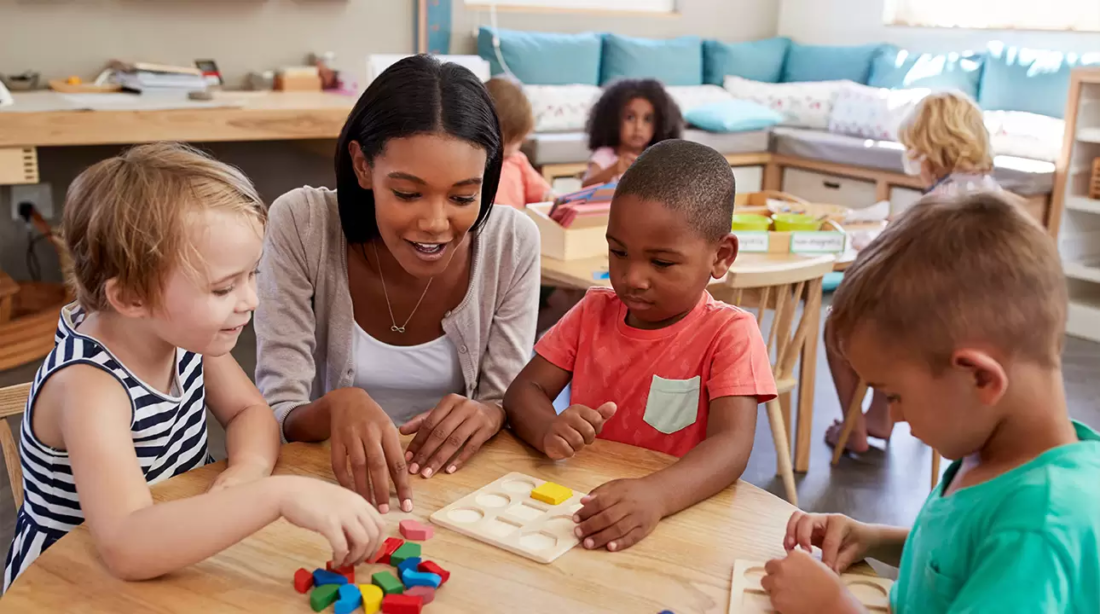
Inclusive education is fundamental to early childhood education and care (ECEC). As educators, it’s imperative to create environments that cater to the diverse needs of all children, including those with special needs.
The Certificate III in Early Childhood Education and Care equips educators with the skills and knowledge to support children of varying abilities.
This blog will explore strategies for effectively supporting children with special needs in ECEC settings, emphasising the importance of inclusive practices.
Understanding Inclusion in Early Childhood Education and Care:
Inclusive education depicts the practice of ensuring that all children, regardless of their abilities or differences, have access to quality education and care.
The Early Childhood Education and Care course provides educators with the foundational skills to create inclusive learning environments that celebrate diversity and promote belonging.
Creating Inclusive Environments:
Creating inclusive environments begins with fostering a culture of acceptance, respect, and empathy. Educators can promote inclusivity by adapting the physical environment to accommodate diverse needs, providing accessible resources and materials, and implementing inclusive practices in daily routines and activities. The Early Childhood Education and Care certification program emphasises the importance of creating welcoming spaces where every child feels valued and supported.
Developing Individualised Learning Plans:
Individualised learning plans (ILPs) are essential tools for supporting children with special needs. These plans outline specific goals, strategies, and accommodations tailored to meet each child’s unique needs.
Educators enrolled under this certification course learn how to collaborate with families, allied health professionals, and support services to develop and implement ILPs that promote children’s growth and development.
Implementing Differentiated Instruction:
Differentiated instruction involves adapting teaching strategies and activities to meet the multiple learning needs of children. Educators enrolled in the special needs program learn how to modify lesson plans, provide alternative learning materials, and offer individualised support to ensure that every child can actively participate and succeed.
Promoting Positive Behavior Support:
Children with special needs might exhibit challenging behaviours that require specialised support. Positive behaviour support (PBS) focuses on understanding the underlying causes of behaviour and implementing proactive strategies to address them.
Educators enrolled in the CHC30121 Certificate III in Early Childhood Education and Care learn how to create supportive environments, teach social-emotional skills, and implement positive reinforcement methods to promote positive behaviour and social interactions.
Collaborating with Families and Support Services:
Effective collaboration between educators, families, and support services is essential for meeting the holistic needs of children with special needs. Educators who choose to educate specially abled kids learn how to build partnerships with families, communicate effectively, and access community resources and support services to ensure that children receive comprehensive care and support.
6 Tips to approach special needs in early childhood education and care
Here are some strategies to observe and address the unique needs of children in early childhood education (ECE) settings while fostering inclusion.
Tip 1: Close Observation without Diagnosis
Observing children’s behaviour is crucial for understanding their individuality. Differences in abilities become apparent through observation, but it’s important not to attempt to diagnose them. Identifying social-emotional needs, possibly due to limited communication at home, is feasible. Lack of social skills can result from excessive screen time, hindering face-to-face interactions. Collaborating with families provides a holistic view, aiding in addressing these special needs.
Tip 2: Regular Observations with Effective Tools
Consistent observation is vital for tracking children’s progress and identifying any changes or special needs. Utilising observation forms tailored to daily life helps educators document and monitor children’s development. Follow-up assessments at intervals enable educators to track developmental progress comprehensively.
Tip 3: Balanced Routine and Novel Experiences
Maintaining a balance between routine and new experiences is essential. Observing children’s reactions to changes provides insights into their progress and needs. Adjusting routines and involving families in building new ones ensure consistency across environments.
Tip 4: Praising Effort Over Results
Encouraging children for their efforts fosters confidence and resilience, especially for those with special needs. Emphasising the value of trying and learning from failures builds a growth mindset and positively impacts learning outcomes.
Tip 5: Strengths-Based Approach
Adopting a strengths-based approach focuses on children’s abilities rather than challenges. Acknowledging and nurturing their strengths builds confidence and resilience, promoting holistic development.
Tip 6: Collaborating with Families and Caretakers
Close collaboration with families and caretakers ensures consistent support for children with special needs. Early and transparent communication with families before children begin their learning journey establishes trust and facilitates effective collaboration.
Conclusion:
Supporting children with special needs in early childhood education and care requires a collaborative and inclusive approach. This also helps children develop the skills and knowledge to create inclusive environments, curate individualised learning plans, implement differentiated instruction, promote positive behaviour support, and collaborate effectively with families and support services. By embracing inclusive practices and celebrating diversity, educators can create enriching experiences that empower all children to thrive and reach their full potential.



